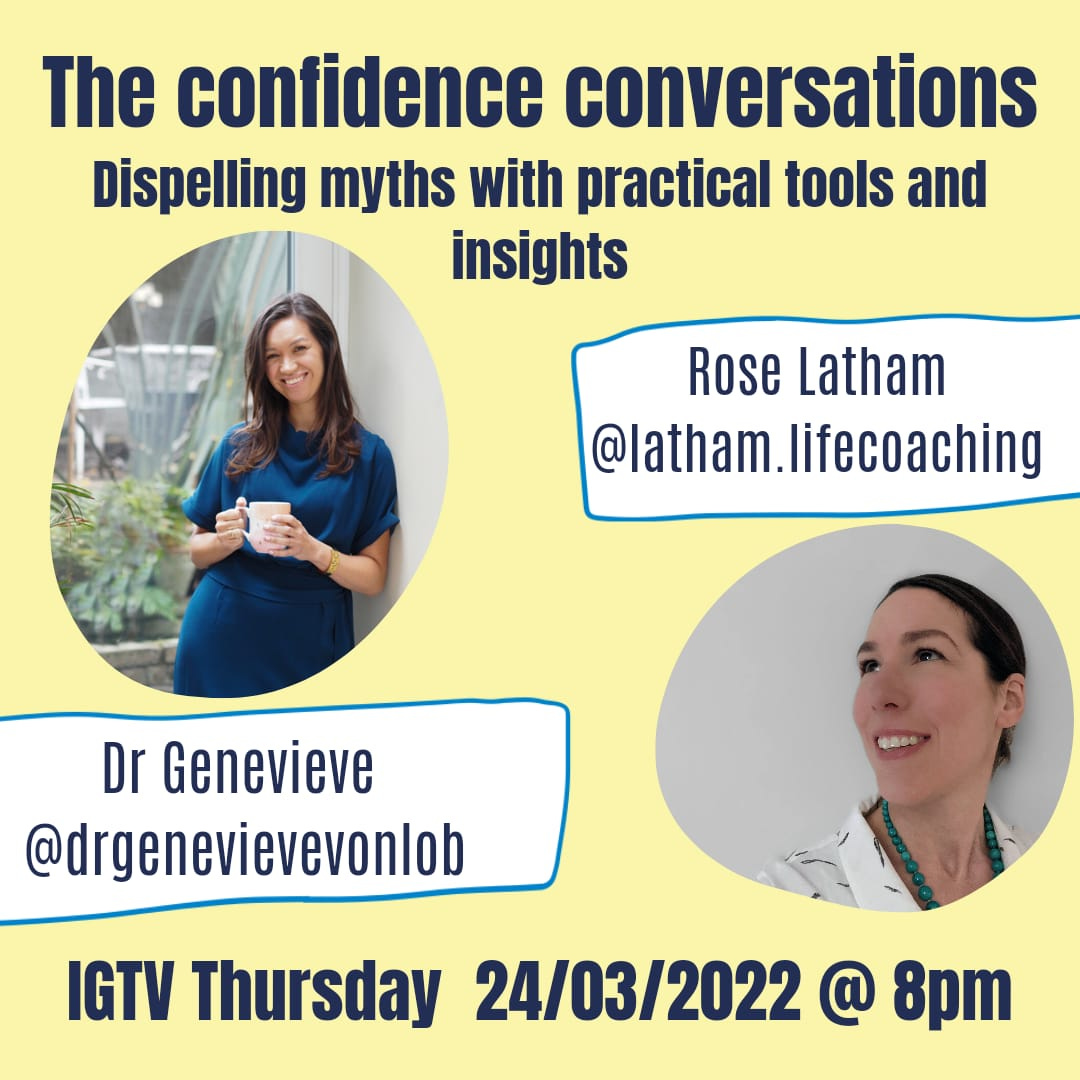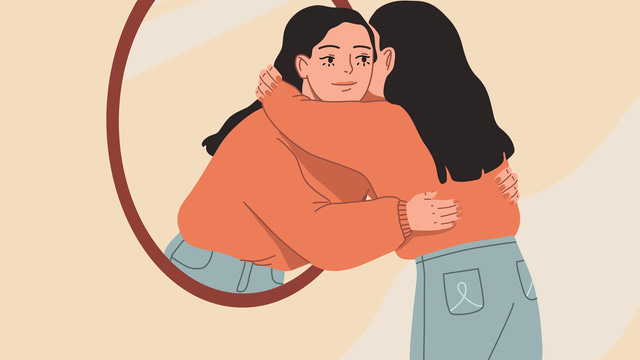My path to confidence as an HSP
After years of stuffing down my anxiety, I learned that self-worth is an inside job.
Welcome to my weekly newsletter building a supportive community for Highly Sensitive People.
When I was a student, I was certain that my lack of confidence would magically disappear as soon as I qualified as a clinical psychologist.
It didn’t work out that way.
Despite obtaining the doctorate and psychology job I’d coveted for years, I still felt a nagging sense of unworthiness. I appeared confident on the outside, but my days were tinged with anxiety.
Slowly, I was forced to confront the fact that the external markers of success I had worked so hard to achieve hadn’t made me any happier.
This Thursday, March 24th at 8pm UK time (GMT) I’m going to discuss confidence in a free 30-minute live video chat on Instagram with life coach Rose Latham. (If you’d like to join, all you have to do is follow me on Instagram, then you will receive a notification when we go live).
Preparing for our talk got me thinking about my own journey — and what I’ve learned about Highly Sensitive People (HSPs), empowerment and self-worth.
Dark Night
The realisation that career success wasn’t the answer was the start of one of the toughest times in my life. I came to think of this time as a Dark Night of the Soul experience — a term used to describe a painful period of disillusionment that can ultimately lead us to connect with deeper dimensions of ourselves.1
As my Dark Night intensified, I began to realise that old parts of me that no longer fit with the person I was becoming were beginning to disintegrate and fall away. At the time, it felt like I was unravelling. But from all I read on the subject, and talking to a trusted friend, I knew I had to feel the feelings fully and take time to process what was happening. It took about a year, and as I began to emerge I found myself questioning many of my assumptions about myself — and much of what I had been taught.
Going within
During my years of psychology training, I became adept at analysing what was going on in my head. But as I grappled with the growing sense of despair that engulfed me, I began to viscerally experience the way my feelings lived in my body.
The first time I tried to sit and observe my thoughts and body sensations by taking some quiet time at home, long-buried emotions shot to surface and I had to stop. I’d always seen myself as a calm, strong person. But I realised that this self-image was merely my shield of protective armour, and that I was carrying a tonne of anxiety. Although I would never have identified as an anxious person, my nervous system had clearly been on high alert for years — which explained my overwhelm.
The journey to confidence began when I learned to turn within and experience my feelings more fully. I began to explore “shadow work” — the process of connecting with all the disowned anxiety, anger and shame I had stuffed down. Only then would I start to own my power more fully.
Epidemic proportions
While the deep sensory and emotional processing associated with high sensitivity means we need plenty of downtime, being born as an HSP doesn’t automatically mean that somebody will feel insecure.
Many of us were lucky enough to have had safe and happy childhoods, where parents recognised our sensitivity as a gift. Such people are confident precisely because they are sensitive — their empathy, creativity and ability to see the big picture make them natural leaders. That said, almost all my coaching clients tell me they want more confidence — and the HSP trait of feeling deeply means that setbacks can really sting.
Over years of working with hundreds of individuals and families, I’ve concluded that confidence is far from a uniquely HSP problem: our collective lack of self-worth has reached epidemic proportions. But for the 20-30% of people who are HSPs, the dilemma can be particularly acute.
“Something wrong”
Because we often feel different, HSPs may grow up feeling misunderstood and never fully seen. We’re often labelled “over-sensitive” and receive the message — either overtly or tacitly — that there’s something wrong with us.
In a culture that measures success in terms of job title and financial status, our emotional intelligence, empathy and intuition aren’t valued in an equivalent way. We may have had few obvious role models to show us how to be sensitive as well as strong.
And each of us face our unique challenges. In my case, severe acne I experienced as a teenager caused me to subtly judge and reject myself in ways I would only begin to unpack years later, as my Dark Night deepened.
Inner critic
I’ve since learned that there is no simple trick or short-cut to confidence. Building our self-worth is an inside job that never ends. Treat it as an adventure, and the journey will continually yield new insights and breakthroughs along the trail.
If you’re wondering how to start, try noticing how often you hear the voice of your “inner critic” — the endless stream of mental commentary that tells us that we’re a “loser,” a “failure” or “not good enough.” This voice loves to compare us to others. You may know at a rational level that the judgements of the inner critic are not true. But when you’re tired, or under stress, the millstone of negative thinking spins faster — and that grinds our confidence down.
Acceptance
The next step is to work on understanding our childhood conditioning — and how those early imprints might be affecting our adult selves. No matter how much our parents loved us, very few of us received unconditional acceptance. We all need to grow and evolve — but this natural impulse of “becoming” can easily turn into pressure as parents or school systems project external definitions of “success” onto us.
To interrupt this cycle, we can take time to reflect on our own values — not those we inherited — and ask what really lights us up. Our culture glorifies being perpetually “busy” — but that’s a distraction. True confidence comes from honoring our HSP needs for flexibility, autonomy, downtime and space for reflection — ingredients that can help us achieve from a deeper place.
Finding the gifts
This work takes commitment.
Many of the Highly Sensitive Children I work with have internalised the idea that they are not acceptable from a young age — they feel like they don’t fit in, or may have been bullied for being different.
Although schools are getting better at recognising the importance of empathy and emotional intelligence, many of us grew up in systems where the strengths associated with our sensitivity weren’t valued.
In later life, many of the HSPs I coach say that the world — and especially their workplace — doesn’t seem particularly interested in their sensitivity, or their ability to pause, reflect and think deeply. Some even say: “I wish I wasn’t so sensitive — it feels like a negative.” That’s partly why I created The HSP Revolution — to support sensitives to discover the enormous gifts this personality trait brings.
To really accept and own that you’re an HSP can be an enormous boost. Being “different” is not good or bad — it just means that you need to find ways to manage your vulnerabilities and maximise opportunities to express your gifts.
Slow down
As we begin to understand ourselves and our temperament, and draw links with our past, we begin to speak with more kindness to ourselves. We can affirm: “I can see I’m struggling right now” or “look how far I’ve come.” And we can decide to live more in alignment with our values.
As we take these initial steps, we become more skilled at the crucial task of self-care. As HSPs, we need to make managing our energy a priority. We can take time to slow down, ground ourselves and — if possible — connect to nature.
Notice when you’re pushing yourself too hard, and ask where all this striving is coming from — and whether it’s really working for you. When you slow down, you feel more whole, more rested, and more integrated. You emanate a more coherent energy field — and others respond to you differently.
Building community
Slowing down also makes it easier to draw firm boundaries and communicate our needs clearly. Without always realising we’re doing it, so many of us spend a huge amount of time managing other people’s feelings, rescuing and giving our energy away — leaving us depleted. But all this people pleasing can cause us to over-ride our inner guidance — which is the true source of our confidence.
All of this can sound daunting, but it becomes much easier in community. So many HSPs feel alone — we need to come together to help each other, share our experiences, and witness each other’s struggles. And through this shared exploration, we may find ourselves increasingly drawn to a sense of mission. That newfound purpose can in turn bolster our confidence — just the kind of virtuous cycle The HSP Revolution aims to support.
See you next week,
For more on this topic, I highly recommend the classic Dark Nights of the Soul: A guide to finding your way throught life’s ordeals, by Thomas Moore.







Dear Dr Genevieve,
This is a really interesting post and one, which I can really relate to, the external markers of success that you mentioned also didn’t seem to greatly increase my wellbeing. I am also aware that reaching any future goals will also not necessarily bring lasting satisfaction unless I continue to do the inner work whilst increasing my default level of happiness and confidence. I’m learning to find peace and joy in simple pleasures whilst understanding my natural rhythms. To gain confidence I’ve had to pull all the stops out, challenging myself and getting back up when I slip back into old patterns of reacting rather than responding. A simple meditation routine and journaling are two practices that I find beneficial. I hope this community will expand and be of great benefit to those who seek self-knowledge and personal growth.